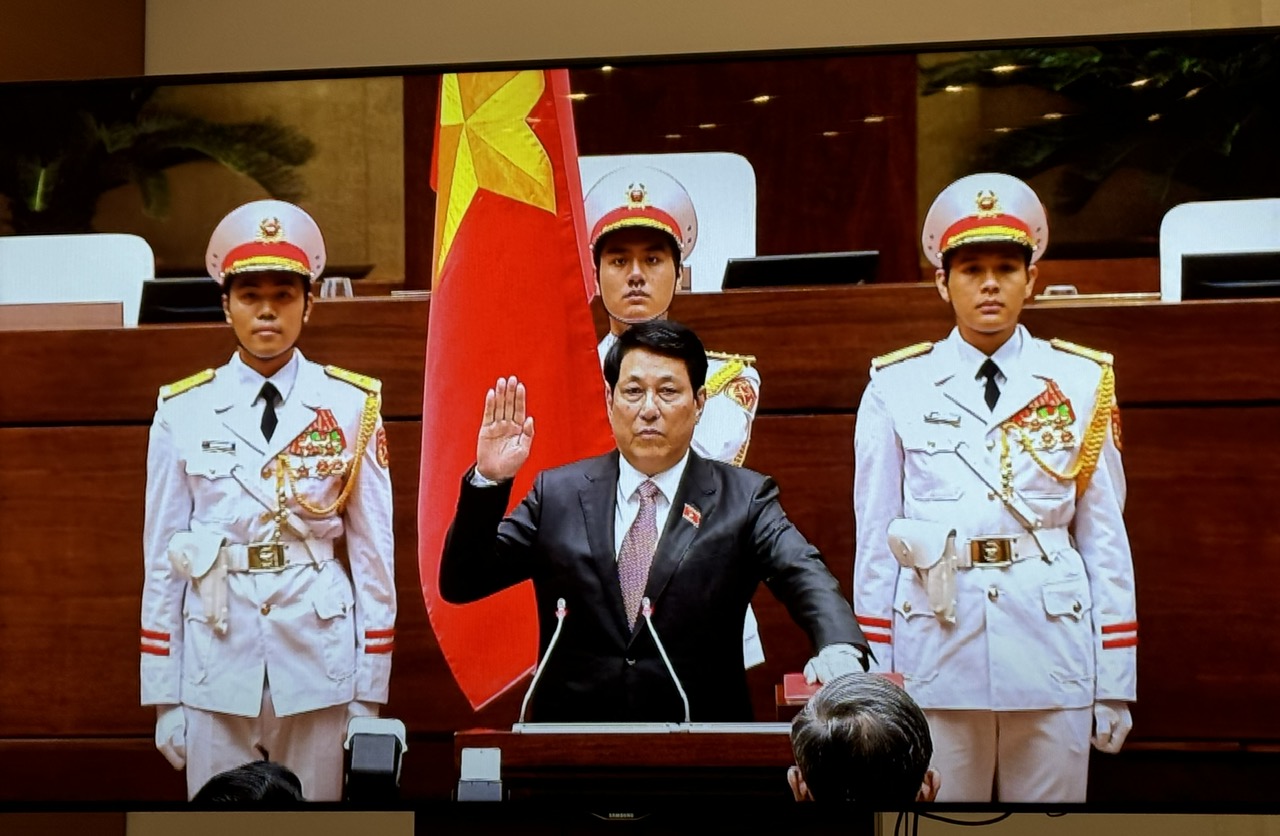General Lương Cường is the new president of Vietnam
Elected by parliament, he takes over from Tô Lâm who became party secretary (the most senior post in the country) after the death of Phú Trọng. The goal is to maintain political stability in the country at a time of an internal power struggle and anti-corruption campaign. In his first speech, Cường promised to boost defence and an independent, multilateral foreign policy.
Hanoi (AsiaNews) – Vietnam’s National Assembly today elected General Lương Cường as the new president of Vietnam, a widely expected decision that aims to guarantee a minimum of stability to the country’s political life after a period of turmoil linked to a power struggle and an anti-corruption campaign that saw leading political figures expelled or forced to resign, starting with previous presidents.
Lương, 67, is a senior army officer; he takes over from Tô Lâm, who was chosen as general secretary of the Communist Party last August, the most important office in the one-party Communist state, replacing Nguyễn Phú Trọng, who died in July.
Many observers note that Lâm himself rose following a series of purges during an ‘anti-corruption campaign' that did not spare the country’s leaders.
Cường, who met with Chinese President Xi Jinping on 11 October, was elected by 440-member National Assembly.
In his inaugural speech, he vowed to "strengthen national defence and security, build up an army force that is revolutionary, well trained, nimble and modern".
Vietnam has long sought to diversify its arsenal based on predominantly Russian-made weapons, but has not been able to reach any major deal with other countries.
Before the election, the new president was the Permanent Member of the Communist Party of Vietnam Central Committee, the fifth-highest office in the country after the party leader, the president, the prime minister, and the speaker of parliament.
Cường is also a member of the Politburo, the party's highest decision-making body.
The president has few direct powers and plays a largely ceremonial role, representing the country in high-level meetings with foreign dignitaries, while remaining one of the top four top office holders.
During his brief mandate as president, Lâm, a former chief of the country’s security forces, met with the leaders of China, Russia, and the United States, among others.
In Vietnam, the party chief is the most powerful figure since the late Nguyễn Phú Trọng expanded its powers in his 13-year tenure.
Lâm’s decision to step away from the presidency is to be linked to a compromise in power sharing within the party, experts say.
Foreign multinationals that invested heavily in the country for export-oriented production have long praised its political stability, but were taken by surprise by the turmoil in the leadership associated with the fight against corruption.
The battle has not spared anyone, as evinced by the resignation of two presidents and a speaker of the National Assembly in the 17 months prior to Lâm’s election.
The new power-sharing agreement is set to last until 2026, when all top positions will be subject to a regular five-year reorganisation.







.png)










